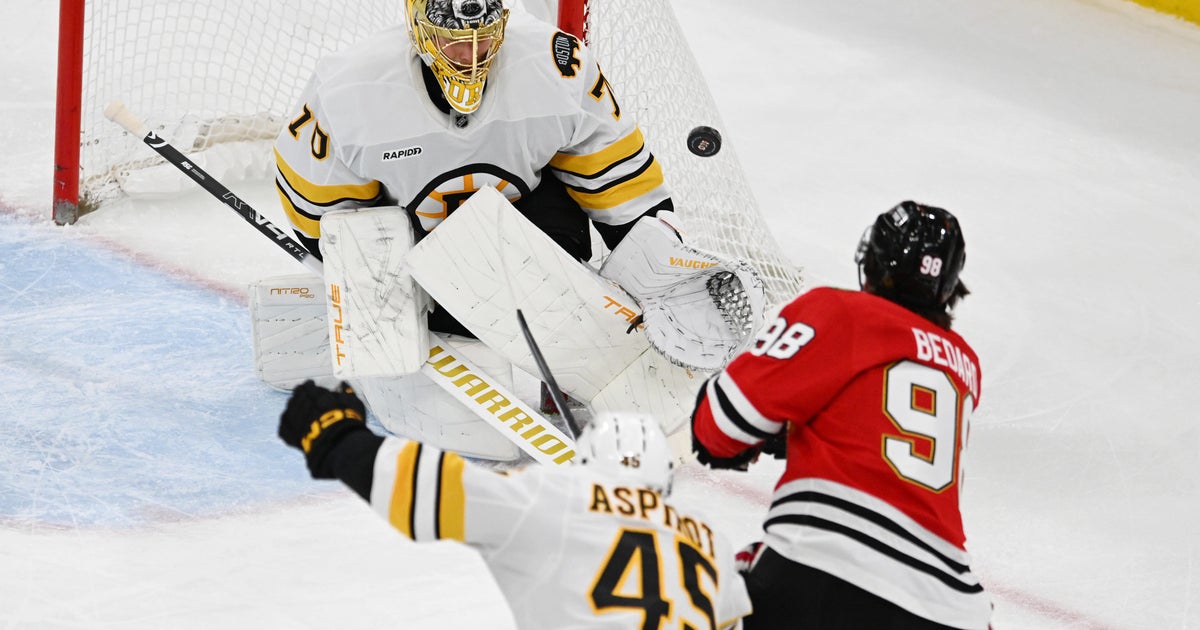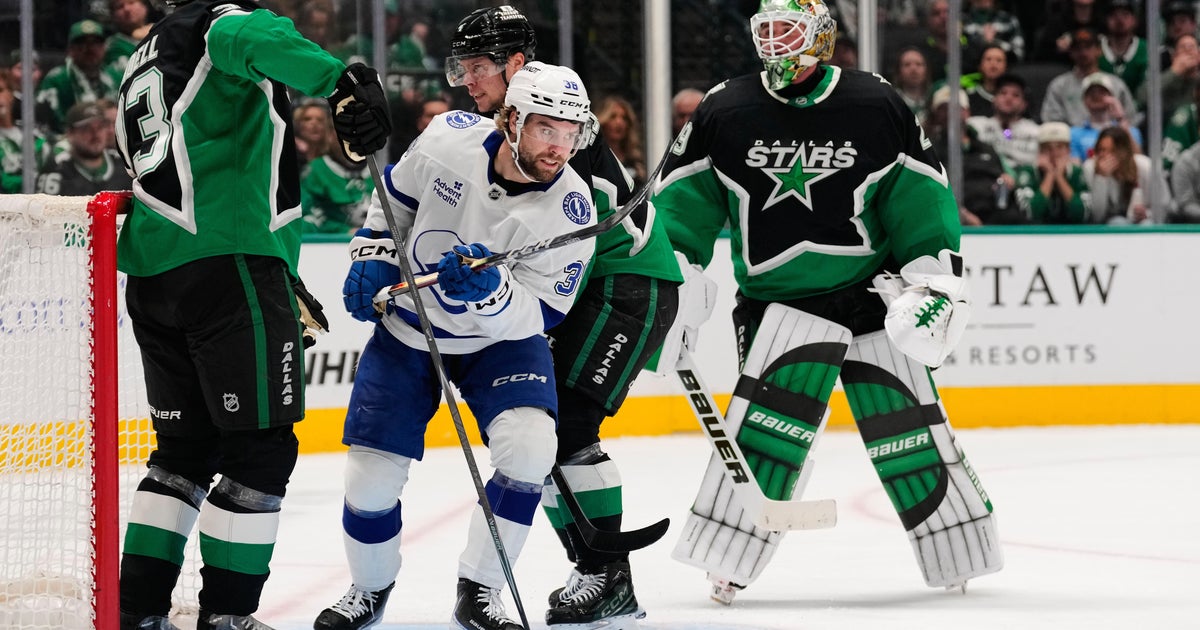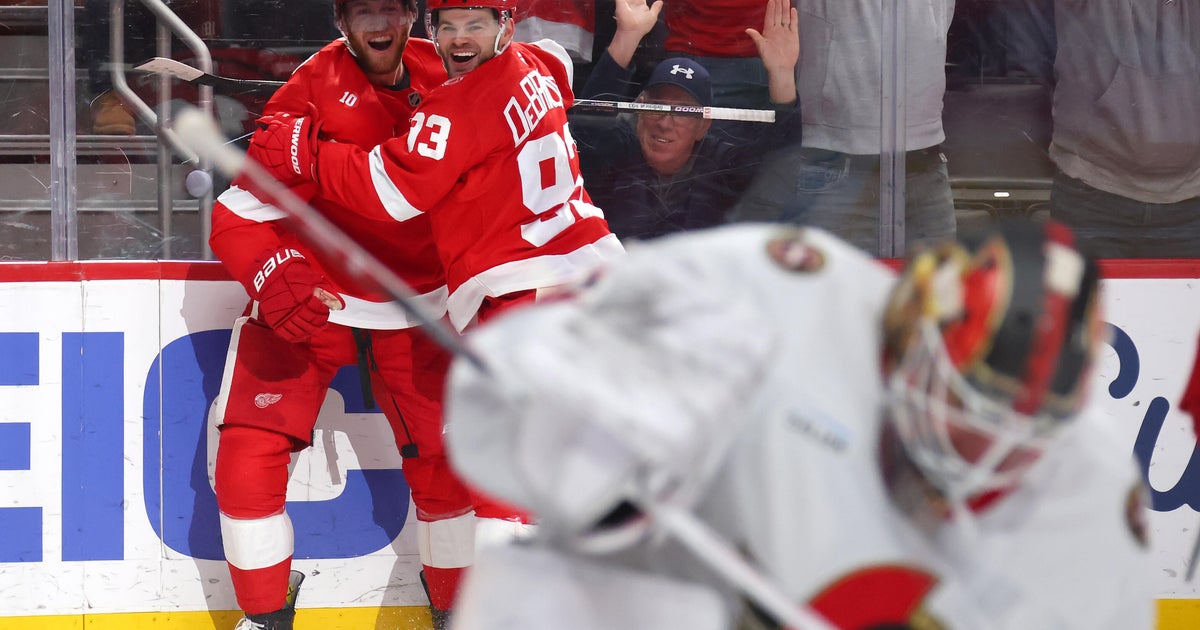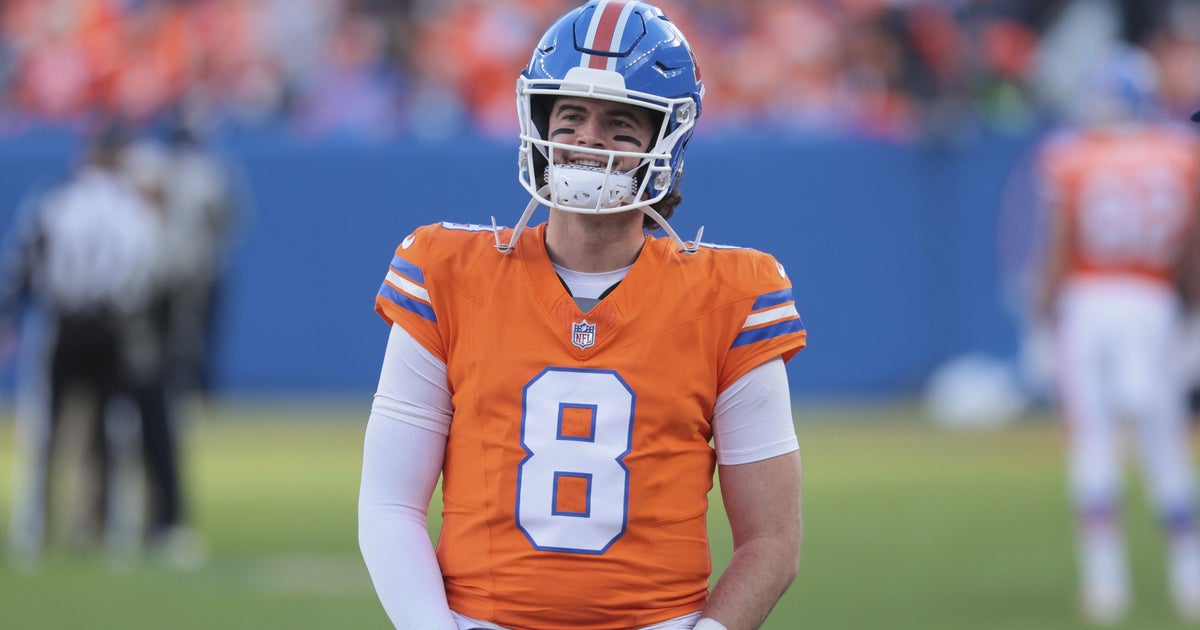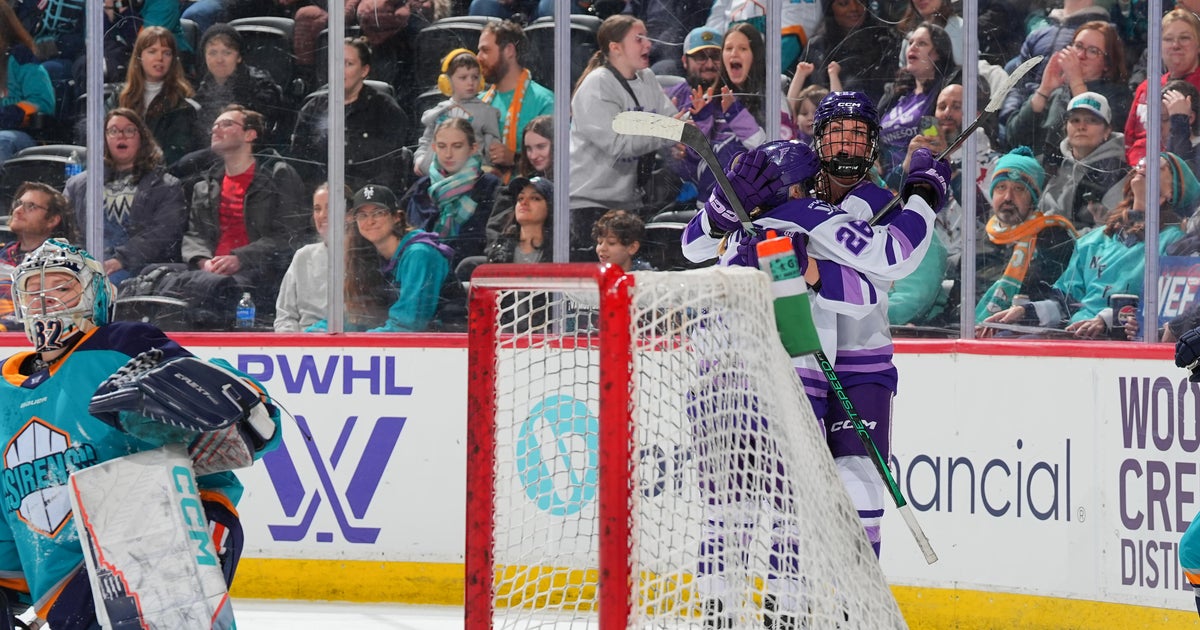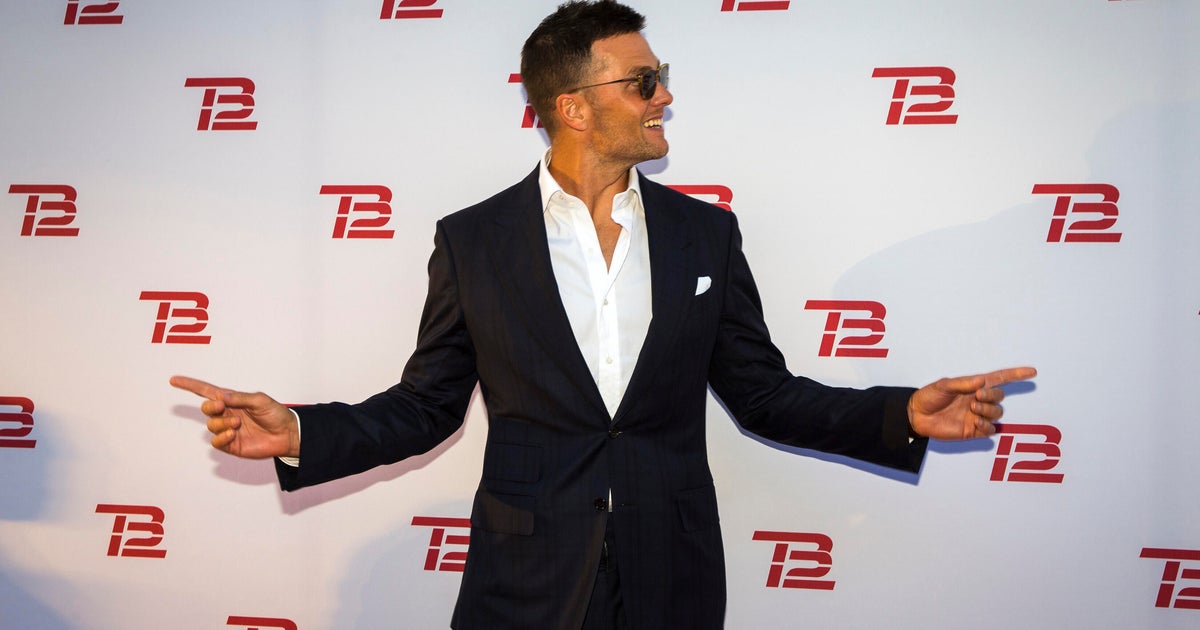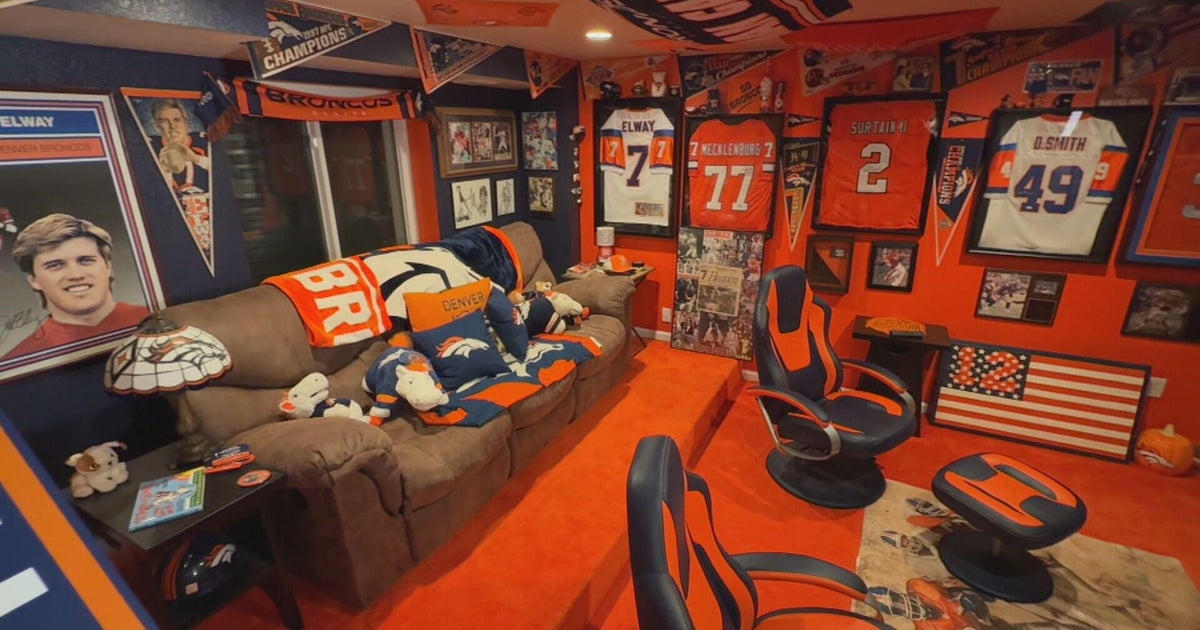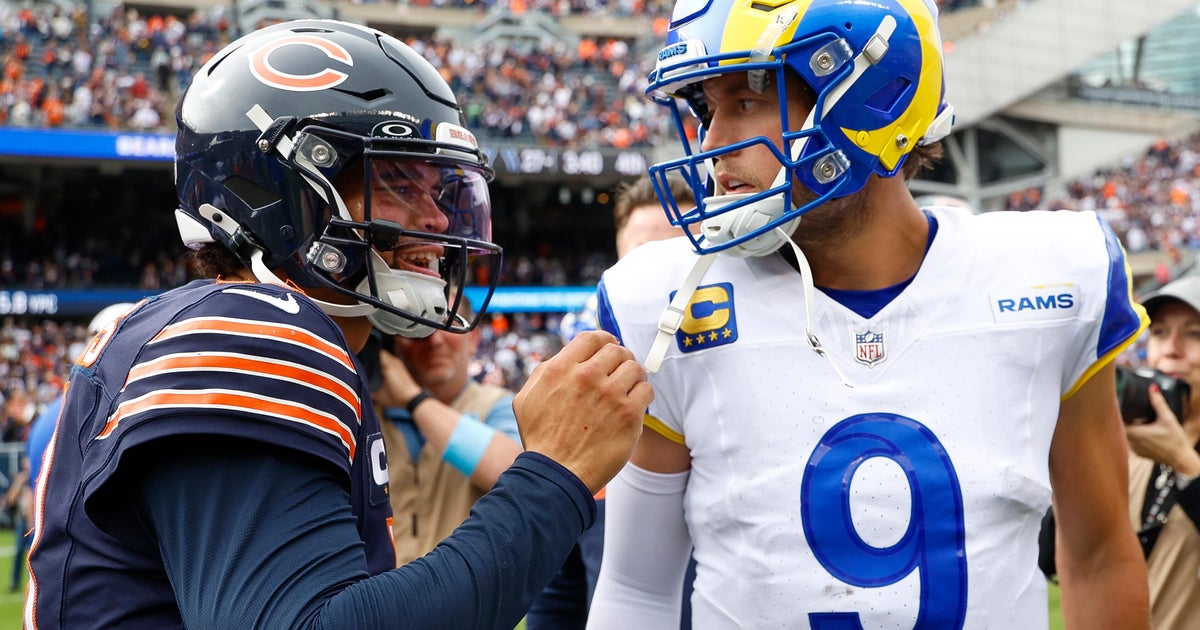We Now Know Exactly What It Takes For Bruins To Lose A Hockey Game
By Michael Hurley, CBS Boston
BOSTON (CBS) -- If you encounter a hockey enthusiast in the greater Boston region on Wednesday and wonder why he or she is wearing a bewildered and perplexed face, then please understand that it is not without reason.
The Boston Bruins have lost a hockey game. In regulation.
The horror.
This is something that fans and followers of the local hockey club have not seen for some time, as the Bruins entered Tuesday night in Montreal riding a six-game winning streak and a 10-game point streak. Their lone regulation loss of the season came all the way back on Oct. 10, a game in Colorado that went up against a Patriots game and thus was not seen in its entirety by the full fan base. That means that there are many hockey fans in New England who did not witness the Bruins lose a game in regulation until Tuesday, the fifth of November, in the year of our Lord two-thousand-and-nineteen.
That's ridiculous.
In any event, despite the loss, the Bruins really could have (or should have?) won on Tuesday night in Montreal. Unfortunately for them, former coach Claude Julien and his habitants de Montréal laid out the blueprint that other teams can now use to defeat Bruce Cassidy and Co. on a regular basis.
The whole world now knows how to beat the Bruins. Here's how.
1. Have Tuukka Rask Look Like An AHL Goaltender
Tuukka Rask is a top-10 goalie on the planet. He entered Tuesday night as the best goalie in the NHL this season. Yet you'd never know any of that based on the way he played.
Rask's glove appeared to be malfunctioning on a pair of goals. He allowed a buttery soft wrister slip through the five-hole for another. He sort of invited contact and went down instead of trying to make a save on another goal. And everything was just a tick off for the 32-year-old Finn. He ended up stopping just 26 of the 31 shots sent his way.
"For me it was [a battle]. It's one of those nights when, you know, you feel like instead of a hockey puck, it's a golf ball out there. Not tracking it well. So tough night for me," Rask said. "Couldn't really make a save."
Considering Rask entered the night with a .949 save percentage, a 1.49 GAA, two shutouts and a 7-0-1 record, this was a most unexpected flop. Rask was asked how and why this kind of night can happen.
"If I knew, it probably wouldn't ever happen. But it's one of those nights where you're not tracking it well," he answered. "That's it."
Rask doesn't have the solution, and opponents now know: Make sure you catch Rask at his absolute worst, and you can beat the Bruins.
(You're going to want your own goalie to play like smelly garbage, too, just as Carey Price did on Tuesday when he stopped 21 of 25 shots and somehow looked worse than those numbers would indicate. That way, the fans get their money's worth with what looks like a highly competitive, back-and-forth game.)
2. Make Sure To Erase The Bruins' Go-Ahead Goal
This one's key. Just like the Penguins did one night prior, the Canadiens were all too eager to cough up a multiple-goal lead to the Bruins, and they were even willing to give that lead to Boston. It was very friendly.
Alas, old foe Claude Julien had a trick up his sleeve when he very keenly noticed that the very back of Charlie Coyle's skate blade was roughly 3 millimeters over the blue line when the puck was just getting past the blue line.
Can't sneak anything past Claude.
Now, the letter of the law may have been properly applied. It also may not have been applied as well; technically, Coyle kicked the puck with his skate to cross the blue line, which could constitute possession of the puck, which would then allow him to enter the zone offside. As the rulebook states, "A player actually controlling the puck who shall cross the line ahead of the puck shall not be considered 'off-side,' provided he had possession and control of the puck prior to his skates crossing the blue line."
Coyle had possession, but not control, one supposes. So, after a very, very long review process, the brain trust in Toronto decided to wipe the Bruins' go-ahead goal off the board. Doubly painful, the Bruins not only lost that go-ahead goal but also lost the minor penalty assessed to Montreal that would have come with a failed challenge.
Cassidy was nonplussed.
The swing proved too much, and the Canadiens tallied the game-winner less than four minutes later.
The lesson: Feel free to give up the go-ahead goal to the Bruins. Just make sure you trick the Bruins into being an inch offside. It's a classic gag, and it's sure to throw them off their game.
3. Be Well-Rested And Catch Them On The Second Leg Of A Back-To-Back, With Travel
This one's a no-brainer, really. If you can make sure that your team has three days of rest, you're going to want to make sure that the Bruins are flying in to your town late at night after they play a game of their own the previous evening.
4. Use Jedi Mind Tricks To Force Them To Make Significant Goofs
This one may be tied into No. 3, but if you can force one of the smarter teams in the league to not play smart, you may find some opportunities.
Take, for example, this goal by Paul Byron, which gave the Habs a 3-1 lead late in the first period. Watch Brett Ritchie pursue the play back toward his own blue line, only to bail out early and head to the bench for a line change.
In going off for the change, Ritchie allowed Byron to fly into the zone unencumbered and get off a shot from a dangerous area. Granted, if Rask is playing like Rask (or even a lesser version of Rask), this is a non-factor. Nevertheless, it's an opportunity that did not need to be offered by the Bruins. (Ritchie had been on the ice for less than 30 seconds, so it's not as if the line change was made in a desperate situation.)
Take, also, the Canadiens' first goal of the night, which came just 1:13 into the first period. With Montreal in control of the puck, all three Bruins forwards drifted above the faceoff circles, with Danton Heinen being the last one to join the trio. Max Domi recognized this and thus floated a soft pass into space for Jeff Petry. The D-man had plenty of time and space to operate, sending a shot on net from the left faceoff dot.
That shot attempt hit a skate, but the defensive scramble led to Victor Mete stepping up and taking another shot from another dangerous area. This one went in.
Just like the previous one, the Bruins probably could have used a save there. Probably. Still, it was an opportunity that never arises if David Krejci, Jake DeBrusk and Heinen stick to the principles that had Boston entering Tuesday with a plus-21 goal differential.
5. BONUS: Have The Officials Blow A Play Dead When You Have Two Players Down On The Ice
This one may or may not have been a factor in the final outcome of the game. It's just impossible to say definitively that it did. Still, it didn't hurt Montreal's cause.
This moment came late in the second period, with the game tied at 3-3. The Bruins had possession in the Montreal zone when Torey Krug fired a slapper toward net. Ryan Poehling bravely (and unwisely?) threw himself in front of the shot, and the came up with the block. For that, he paid a price, as he immediately went down in a heap, flinging his stick in the air and grabbing his head.
He did this because ... that has got to hurt.
Just before the shot block, Petry fell to the ice in the corner, apparently bothered by some type of leg injury, too. By rule, officials do not blow a play like this dead until the team with the injured player regains the puck. However, on-ice officials can blow a play dead "in a case where it is obvious that a player has sustained a serious injury."
Considering the severity of some injuries we've seen (Gregory Campbell says hello), and considering the fact that we saw a team score a goal in the playoffs when the actual goaltender himself was suffering from an injury ...
... we've been led to believe that only the most dangerous, frightening, bloody messes of injuries would rise to the level of a play stoppage.
That must have been the fear in this case, as the whistle blew, thus ending an impromptu 5-on-3 situation for Boston.
Yet considering Poehling didn't miss a shift and was back on the ice two minutes later, his serious injury must not have been so obvious.
Would the Bruins have scored, given that free opportunity? Probably not. But given how lethal their power play has been, and given that the Brad Marchand-Patrice Bergeron-David Pastrnak line was on the ice, along with Krug? They had a fair shot.
That's It
So, now that all of this is well-documented and recorded, expect opponents around the league to try to replicate exactly what Montreal did on Tuesday night at the Centre Bell. Sadly, the Bruins' run of success may now be over for good, now that they've been exposed.
It was a good run.
You can email Michael Hurley or find him on Twitter @michaelFhurley.
